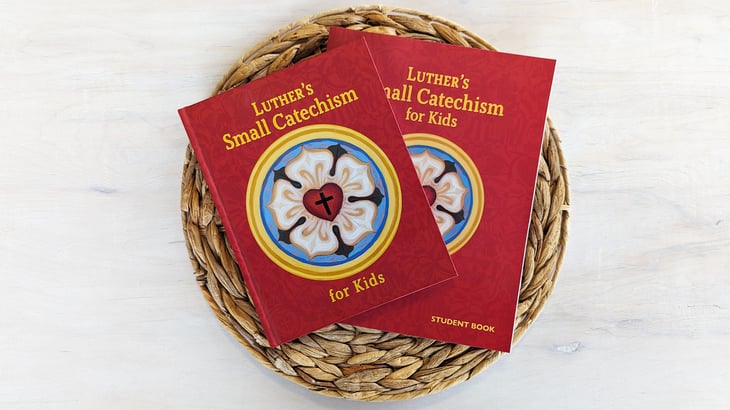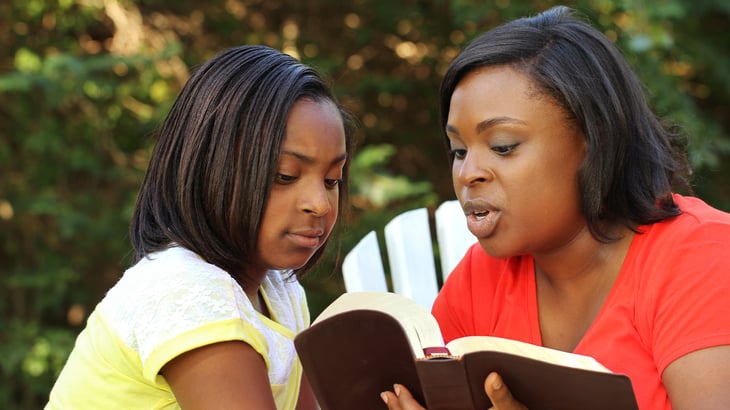Recent Posts by Christa Petzold
Who Was John Chrysostom?
One of my favorite parts of teaching church history to high school students is assigning primary sources and hearing or reading their reactions. Works like Athanasius’s On the Incarnation, Augustine’s Confessions, or Eusebius’s Church History often intimidate students initially. But there’s nothing like the moment when a student opens a presentation, sometimes with a hint of surprise in their own eyes, with “I found this incredibly relatable.” I can never hide my smile.
Who Was Ambrose of Milan?
As a part of my blog series about church history figures, I’ll be introducing Ambrose, a remarkable man who served as bishop of Milan from AD 374 to his death in AD 397. Read on to discover the hidden gems in the life of Ambrose.
Who Was Byzantine Emperor Justinian?
Like any country, sometimes we are blessed with God-fearing leaders, and sometimes we are not. Sometimes our land experiences prosperity and peace, sometimes war and disaster. Sometimes churches build and grow; sometimes they struggle and close their doors. It can be difficult to find ways to explain current events to young people, especially if we struggle to understand why things happen the way they do ourselves.
Who Was Ignatius of Antioch?
If your experience is anything like mine, you look around the world today and see a culture increasingly hostile to Christianity. Something as simple as a trip to the local library with the kids has shifted in recent years from a pleasant morning out in the community to an aggressive confrontation with anti-Christian ideology.
Who Was St. Augustine of Hippo?
“You have formed us for Yourself, oh Lord, and our hearts are restless until they find rest in you.” —St. Augustine of Hippo, Confessions, 1.1, paraphrased
If you enter a room of pastors, theologians, or historians and ask, “Apart from Jesus Christ and the apostles, who is the most important figure in church history?” you will likely be met with blank stares as your audience grapples with the difficulty of answering such a question. But if they decide to play along, Augustine’s name is one of the first you will hear.
3 Reasons to Teach Church History to Kids
Recently, I had the opportunity to share about the books I write at a homeschool convention. I remember one mom looked over the flier about Journey through Church History and said thoughtfully, “I don’t know if it ever occurred to me to teach my kids about church history, but I think that’s a great idea.”
Using Luther’s Small Catechism for Kids Curriculum
Our world is ever so fond of dichotomies. One of the most time-honored of educational debates is the perennial question: Which is more important—memorization or comprehension?
Teaching the Big Words of the Faith
When we teach children, we tend to simplify things. When we teach children about God, we want them to understand the truths we are communicating on their level in a way that is comforting, helpful, and life-giving for them. Today, I would like to propose that we use the “big words” of our faith when we teach our kids, preteens, and teenagers, whether that be in the home, in the church, or in a school setting. When it comes to terms like justification, sanctification, absolution, incarnation, Law, Gospel, atonement, resurrection, ascension, and so on, which ones have you taken the time to use and define with the young people in your life?
How to Teach Children to Tithe
When I was growing up, my parents gave me an allowance so they could teach me how to manage money. They taught me how to use a bank account, save for big purchases, and tithe. It was not an extravagant amount of money. I remember when my allowance was a single dollar. On Saturday night, I would set out a dime by my church dress before going to bed. Then I’d put the dime in the offering plate at church the next morning. Now, parenting my own children, I feel at times that I am much less organized than my parents were. I have only recently started talking to my children about finances, and the fact that everything is digital and automated today makes it harder for me to model money management to them in ways they can visualize.
Discipling Our Children by Abiding in the Word
My mother once said, “The best children’s ministry a church can have is a solid, pastor-led adult Bible study.” Since that conversation, I’ve contemplated her words often, reflecting on the positive trickle-down effect of an adult Bible study in the life of families and congregations.




















